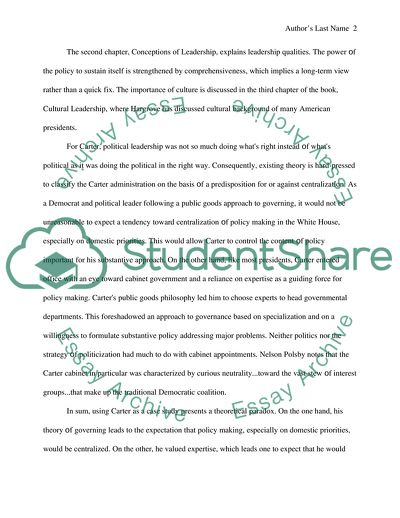Cite this document
(The President as Leader by Erwin C. Hargrove Book Report/Review Example | Topics and Well Written Essays - 1250 words - 1, n.d.)
The President as Leader by Erwin C. Hargrove Book Report/Review Example | Topics and Well Written Essays - 1250 words - 1. https://studentshare.org/politics/1712113-a-clear-chapter-by-chapter-synopsis-of-the-president-as-leader-by-erwin-c-hargrove
The President as Leader by Erwin C. Hargrove Book Report/Review Example | Topics and Well Written Essays - 1250 words - 1. https://studentshare.org/politics/1712113-a-clear-chapter-by-chapter-synopsis-of-the-president-as-leader-by-erwin-c-hargrove
(The President As Leader by Erwin C. Hargrove Book Report/Review Example | Topics and Well Written Essays - 1250 Words - 1)
The President As Leader by Erwin C. Hargrove Book Report/Review Example | Topics and Well Written Essays - 1250 Words - 1. https://studentshare.org/politics/1712113-a-clear-chapter-by-chapter-synopsis-of-the-president-as-leader-by-erwin-c-hargrove.
The President As Leader by Erwin C. Hargrove Book Report/Review Example | Topics and Well Written Essays - 1250 Words - 1. https://studentshare.org/politics/1712113-a-clear-chapter-by-chapter-synopsis-of-the-president-as-leader-by-erwin-c-hargrove.
“The President As Leader by Erwin C. Hargrove Book Report/Review Example | Topics and Well Written Essays - 1250 Words - 1”. https://studentshare.org/politics/1712113-a-clear-chapter-by-chapter-synopsis-of-the-president-as-leader-by-erwin-c-hargrove.


